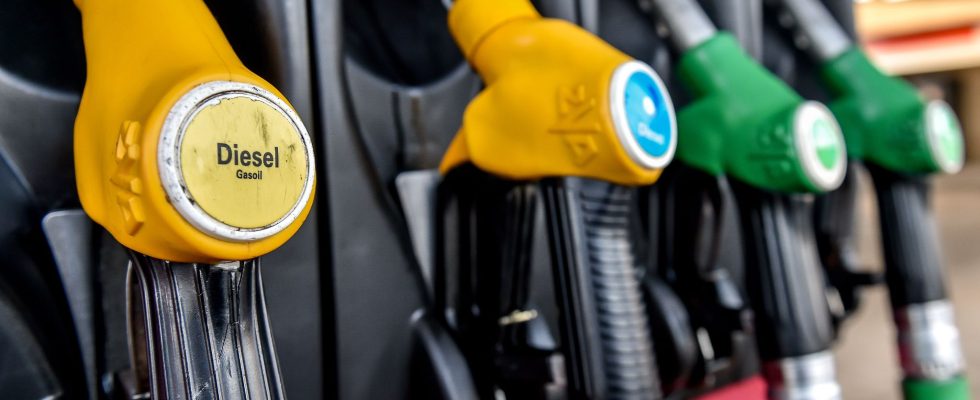Faced with soaring prices, the executive is playing firefighter. Objective: respond to consumer anger, without digging a new hole in the state budget. And the Prime Minister, Elisabeth Borne, found the solution, even if it meant going back to an old law which seemed set in stone. The head of government announced, in an interview with Le Parisienposted online on Saturday September 16, that it wanted to allow distributors to sell fuel “at a loss” for a few months “on an exceptional basis”.
This lifting of the ban will be included in the bill “on commercial negotiations between producers and distributors” presented at the beginning of October”, specified the office of government spokesperson Olivier Véran.
What are we talking about ? Resale at a loss has been prohibited in France since 1963. Merchants cannot “resell or announce the resale of a product as is below its actual purchase price”, explains Fraud Repression on its website ( DGCCRF).
In 2018, the third French food distributor, Intermarché, was forced to pay a transactional fine of 375,000 euros – the maximum amount incurred for reselling at a loss – for having marketed Nutella at a very discounted price. The promotional operation had led to scenes of jostling and fights which had left their mark. The DGCCRF lists a few exceptions: cessation or change of commercial activity, end of seasons – during winter or summer sales -, “technical obsolescence or out-of-date products”, or even if the products are “threatened with rapid deterioration “.
Potentially half a euro less per liter”
However, the rise in fuel costs has got the better of this law, which is more than half a century old. At the beginning of September on average, SP95-E10 sold at 1.9359 euros per liter (+0.9 cents compared to the previous week), diesel at 1.88 euros (+2.3 cents) and SP- 98 to 2 euros (stable): prices which had not been so high since April for gasoline and February for diesel, according to statistics from the Ministry of Ecological Transition.
Several factors explain the surge in prices at the pump. First of all, the margins of crude refiners are on the rise again in Europe. Then, at the global level, the restrictive policy carried out by the OPEC countries – Saudi Arabia and Russia in the lead – is also increasing the price of Brent. Riyadh chose, at the beginning of September, to maintain the drop in its daily production of one million barrels. Same logic for Moscow which continues to reduce its exports by 300,000 barrels per day. At the same time, demand continues to increase, driven by China. According to forecasts from the Organization of the Petroleum Exporting Countries (OPEC), it could exceed supply by 3.3 million barrels, a first in sixteen years.
With the green light from the government, what drop in prices can we expect at the pump? “We are not saying that gasoline will drop to 1.40 euros in all stations for six months. We are saying that there may be commercial operations,” replied the government spokesperson. Concretely, the former Minister of Health is talking about “potentially half a euro less per liter”.
But will supermarkets step into the breach? Gasoline could serve as a “loss leader”, a particularly attractive item that would allow them to lure consumers into their brand. For them, “this will be a very important commercial argument”, anticipates François Geerolf, economist at the French Observatory of Economic Conditions (OFCE), on Franceinfo. From there to increase their prices on other products to compensate? “We think that there will be no risk of a catch-up effect,” reassures Olivier Véran. He says he is banking on the “goodwill shown by those who sell gasoline to make additional efforts.”
Avoid a social explosion
If the executive gives the impression of responding to consumer demand, it is because it does not want to take the risk of a new social explosion. Thus, he prefers to hide behind a so-called demand from distributors. “We hear brand owners saying that they do not have the right to lower their prices because they cannot sell at a loss. Well, we are going to change these rules,” said Christophe Béchu, the Minister of Ecological Transition and Territorial Cohesion, Sunday on France Inter.
However, Elisabeth Borne’s idea made traditional players jump, who fear a price war. Francis Pousse, national president of service stations and new energies within the Mobilians professional union, maintains that this measure is “completely unfair”. For its part, the 40 million motorists association believes that “the government is shifting its responsibilities onto private companies”. For Philipe Nozière, president of the association, the solution “can only come through a reduction in taxes”, he said on Franceinfo.
In the ranks of the political opposition, voices were raised. On Sunday, LFI coordinator Manuel Bompard denounced on France 3 “jokes” and “appetizers” put in place by the executive. He called for “getting away from the logic of incantation” and “blocking fuel prices at, roughly, 1.50 euros”. On BFMTV, the president of Reconquête! Eric Zemmour criticized a “tinkering” by the government, pleading for a tax cut.
